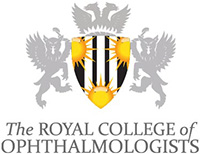| TITLE | MONITORING PROGRESS |
|---|
Code |
PM6 |
Learning Outcome |
- Assess the progress of a patient’s condition and respond accordingly. This includes observation of the natural history of a disease and clinical improvement or deterioration in response to interventions.
- Recognise when it is appropriate to seek advice from other professionals.
|
Assessment |
CbD Part 2 FRCOphth
|
Assessor |
|
Target Year of Achievement |
Year 1 (annual review) |
Related Learning Outcomes |
BCS7 AER5 AER7
|
Overview |
- It is important to be aware of early signs of improvement or deterioration in a patient’s condition. Consider what factors may indicate that treatment is working, or may need reviewing.
- Be aware of the timescale of potential complications and use this to guide your follow up arrangements.
- Consider the repercussions that may occur as a consequence of ophthalmic conditions; particularly consider implications on driving and working, including travel plans and expected fitness to return to work.
- Ensure that you track patient journeys and organise follow up of investigations requested even when you have handed over care of the patient, and review cases to better understand disease progression. This should include case based discussions with clinical supervisors.
|
Resources |
View Resources |
